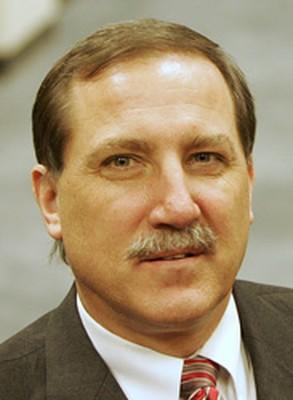Gonzales gave nod to firing, aide says


WASHINGTON — Attorney General Alberto Gonzales gave a personal thumbs-down to Daniel Bogden at a November 2006 meeting with advisers in which he was told the Justice Department could "do better" with a new U.S. attorney in Nevada, a former top deputy told Congress on Wednesday.
Monica Goodling, a former senior counsel who testified before the House Judiciary Committee, placed the attorney general at a Nov. 27 meeting where top officials reviewed a list of seven chief federal prosecutors who were about to be fired.
Gonzales has said in testimony to Congress that he doesn’t recall the meeting and that his role was limited in discussions about the U.S. attorneys leading to their dismissals on Dec. 7.
But in a highly anticipated appearance before the House committee, a packed hearing room and dozens of cameras, Goodling said she believed Gonzales knew more than he had acknowledged.
"I believe he did see a list. I believe he was briefed," Goodling said, "He was certainly at the Nov. 27 meeting."
Goodling, a former White House liaison to the Justice Department, was granted immunity from prosecution for her daylong testimony to House investigators about last year’s purge of U.S. attorneys.
She had become a mystery figure after resigning on April 6, declining to testify before Congress and citing her Fifth Amendment right against self-incrimination.
Democrats claim politics were behind the decision to remove the U.S. attorneys, though the Bush administration claims there was nothing improper with relieving the officials who were political appointees who served at the wishes of the president.
Goodling, 33, offered new details about Bogden, who was U.S. attorney in Nevada from 2001 until his dismissal. His termination has been criticized by Nevada lawmakers who have defended his performance.
All but Sen. John Ensign, R-Nev., have called for Gonzales to resign over the U.S. attorney firings.
In testimony, Goodling stepped forward as the one who first suggested Bogden be replaced. She said she did so in January 2006 after reviewing a list of targeted U.S. attorneys drawn up by Kyle Sampson, Gonzales’ chief of staff.
Goodling said she suggested adding Bogden and Arizona chief prosecutor Paul Charlton. She believed that Sampson had rejected her suggestion when the U.S. attorneys were not included in subsequent updates.
In September, Bogden and Charlton appeared on the list of officials being considered for termination. Goodling said she did not know why they were added at that time.
Regarding Bogden, "I simply did not know of any specific accomplishments in the district, and I recall that Mr. Bogden had received criticism for one incident in his district involving the U.S. Patriot Act," Goodling said in prepared testimony.
The Justice Department came under criticism when the FBI in October 2003 cited a money laundering provision in the Patriot Act to obtain financial information about key figures in the political corruption investigation involving strip club owner Michael Galardi and members of the Clark County Commission.
Justice officials defended its use but acknowledged it was the first time the Patriot Act, which was conceived as a tool to hunt terrorists, was used to investigate bribery or other public corruption.
Gonzales has portrayed himself as somewhat of a bystander in Bogden’s termination. He has said firing the Nevadan was the "closest call," and that he has offered to help Bogden find a new job.
"I do not recall what I knew about Mr. Bogden on December 7," Gonzales told the Senate Judiciary Committee on April 19. "I did not have an independent basis or recollection of knowing of Mr. Bogden’s performance."
But Goodling said Bogden was discussed at the Nov. 27 meeting, and Gonzales made the call on his fate.
At the session, Deputy Attorney General Paul McNulty asked why Bogden was on the list.
"Did he do something wrong, or is there a general sense we can do better," Goodling recalled McNulty saying.
She said Sampson responded there was a "general sense we can do better."
Goodling said she mentioned the Patriot Act episode, "which had gotten messy a few years ago."
Goodling said the advisers turned to Gonzales, "and said what do you want to do?"
"The attorney general nodded and said OK," Goodling said, meaning Bogden was slated for termination.
Reached later Wednesday, Bogden said the use of the Patriot Act in the Galardi investigation "was signed off on at the highest levels" of the Justice Department.
"We did receive approval on that portion of the investigation," he said, adding he had no idea how that could have been a factor in his termination.
Bogden said that during his tenure as U.S. attorney he recalled no interaction with Goodling, who worked in several Justice Department posts including deputy director of the Executive Office for U.S. attorneys from March to October 2005.
Bogden, who has had several conversations with Gonzales since being fired, said he was puzzled by the seemingly differing accounts of the attorney general’s role in his termination.
"Gonzales has said he didn’t have anything to do with these decisions," Bogden said. " It appears there is a conflict in what the parties are testifying to."
Goodling’s testimony underscores the flaws in the process by which the prosecutors were fired, Bogden said.
"It seemed there was no deliberative process to make decisions you would think would be made in important personnel decisions," he said.












